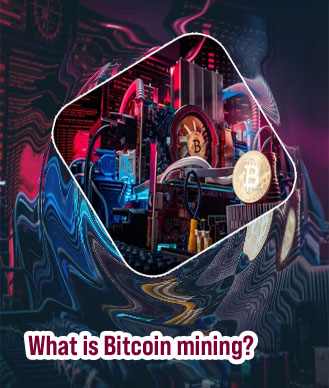
| Join | Login | ||

|
What's bitcoin mining |
|
|
Bitcoin mining is a complex process that involves solving computational puzzles to validate transactions on the blockchain. To better understand the intricacies of this concept, it is important to delve into various articles that explore different aspects of bitcoin mining. Below are three insightful articles that delve into the world of bitcoin mining, shedding light on its importance, process, and impact on the cryptocurrency ecosystem. The Role of Bitcoin Mining in Securing the Network
Bitcoin mining plays a crucial role in securing the network of the world's most popular cryptocurrency. Mining is the process by which new bitcoins are created and transactions are verified and added to the blockchain. Miners use powerful computers to solve complex mathematical puzzles, and the first miner to solve the puzzle is rewarded with newly minted bitcoins. This process not only creates new bitcoins but also ensures the integrity of the entire Bitcoin network. One of the key ways in which Bitcoin mining secures the network is through the concept of proof of work. Miners must demonstrate that they have expended computational power in order to validate transactions and create new blocks. This proof of work makes it extremely difficult for malicious actors to alter the blockchain, as doing so would require an immense amount of computational power. Additionally, Bitcoin mining helps to decentralize the network. Unlike traditional financial systems that rely on a central authority, such as a bank, Bitcoin operates on a peer-to-peer network. Miners from around the world contribute to the security and operation of the network, ensuring that no single entity can control or manipulate the system. In conclusion, Bitcoin mining is essential for securing the network and maintaining the integrity of the cryptocurrency. By incentivizing miners to validate transactions and create new blocks, Bitcoin ensures that the network remains secure and A Beginner's Guide to Bitcoin Mining: How Does It Work?Bitcoin mining is a crucial process in the functioning of the popular cryptocurrency. Essentially, Bitcoin mining is the way new Bitcoins are created and transactions are verified and added to the public ledger known as the blockchain. But how exactly does it work? In simple terms, Bitcoin mining involves solving complex mathematical problems using computer hardware. Miners compete with each other to solve these problems, and the first miner to do so is rewarded with a certain amount of Bitcoins. This process is known as proof of work, and it ensures the security and integrity of the Bitcoin network. One key component of Bitcoin mining is the mining difficulty, which adjusts approximately every two weeks to ensure that new Bitcoins are mined at a consistent rate. This difficulty level is influenced by the total computational power of the network, known as the hash rate. The higher the hash rate, the more difficult it is to mine Bitcoins. As of now, Bitcoin mining is dominated by large mining pools and specialized hardware known as ASICs (application-specific integrated circuits). These powerful machines are specifically designed for mining Bitcoins and have significantly higher hash rates than traditional computers. In conclusion, Bitcoin mining plays a vital role in the operation of the Bitcoin network. It is a complex process that requires specialized hardware and significant computational power. Understanding how Bitcoin mining works is essential The Environmental Impact of Bitcoin Mining: Myths and RealitiesBitcoin mining has come under scrutiny in recent years due to its perceived environmental impact. However, separating fact from fiction is crucial when discussing this issue. One of the most common myths surrounding Bitcoin mining is that it is a major contributor to carbon emissions. While it is true that Bitcoin mining does consume a significant amount of energy, the actual environmental impact is often exaggerated. In reality, the environmental impact of Bitcoin mining is more nuanced. The majority of Bitcoin mining is now done using renewable energy sources such as hydropower and solar energy. In fact, a study conducted by the University of Cambridge found that 76% of cryptocurrency miners use renewable energy in their operations. This goes to show that the industry is taking steps to reduce its carbon footprint. Another important point to consider is the comparison between Bitcoin mining and traditional banking systems. Studies have shown that the energy consumption of the traditional banking sector far exceeds that of Bitcoin mining. For example, a report by the banking industry found that the total energy consumption of all banks worldwide is more than three times that of Bitcoin mining. In conclusion, while it is important to be mindful of the environmental impact of Bitcoin mining, it is crucial to separate myths from realities. The industry is making strides towards using renewable energy sources, and the energy consumption of Bitcoin |
|
© 2014 BTC Surf best cryptocurrency exchange all rights reserved worldwide